LIBRARY
Collections to connections
Library helps scholars bridge time and space
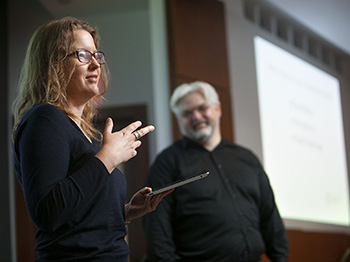
Law librarians Carissa Vogel, left, and Dan Blackaby (as well as librarian Amy Emerson, not pictured) teach regularly and, during Reunion Weekend, taught continuing legal education courses to alumni. See larger image
Helping people find knowledge in books and databases, meeting with expert librarians, providing space for learning – those connections are Cornell University Library's bread and butter.
But what about the unexpected connections that reach outside a library's traditional boundaries? They are numerous and diverse, and seem to spring up everywhere. Here are just four examples.
Meeting a mentor
During his sophomore year, Samuel Ritholtz '14 met with a librarian to find the best sources for his research paper.
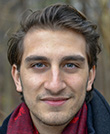
Samuel Ritholtz '14. Photo: provided. See larger image
"I learned of the best journals in my discipline from a librarian, and through researching these journals, I identified a favorite author whose work I became very familiar with," he recalls. That author was Nidhi Tandon, a social activist working with women's groups in developing countries.
Later that year, while at the Second Intersessional Meeting of the United Nations Conference on Sustainable Development, Ritholtz attended an event on the role of women in developing countries and spoke with the presenter after a particularly interesting session.
"I realized that this was Nidhi Tandon, whose work I knew and loved!" Ritholz says. "I would not have had this experience without the guidance of the librarian and access to important resources."
Open access, out of the comfort zone
The library's Open Access Publication Fund allowed Rodney Dietert, professor of immunotoxicology at the College of Veterinary Medicine, to explore an area of immunology outside his usual expertise: the microbiome, or flora in the gut, skin, airways and urogenital tract.
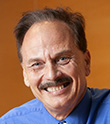
Professor Rodney Dietert. See larger image
"The diversity of the microbiome at birth is an indicator of the body's health throughout life," he explained. "While I understood this, I hadn't researched the topic until the opportunity came up to publish in [the journal] Entropy. And I never would have considered publishing in a physics journal without assistance from the fund."
That article led to more publications. Two British filmmakers read the original article and included Dietert's research in their documentary, "Microbirth," on natural childbirth and the seeding and feeding of a baby's microbiome. This new area of study also filled his calendar with lectures through spring 2015 with the promise of more to come.
"My career took an unexpected turn into a whole new direction. All of these things – the original paper, the subsequent peer-reviewed publications, the documentary film and the invited lectures – owe their existence to the Open Access Publication Fund," Dietert says.
Reunion in the classroom
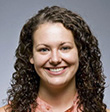
Anna Angel '06, J.D. '12. Photo: provided. See larger image

Anna Angel '06, J.D. '12. Photo: provided. See larger image
Imagine spending Reunion not just catching up with classmates, but taking classes with them again. Law alumni do just that; law librarians teach continuing legal education courses over Reunion Weekend, allowing alumni to earn continuing education credits to meet New York State Bar requirements.
"It's an incredibly convenient option," says Anna Angel '06, J.D. '12. "The topic of how technology is changing the way we practice law was very relevant to my work, and the discussion was lively and thought-provoking."
Angel adds that she uses library resources on a regular basis and appreciates that the library is continually improving alumni access to databases.
"It's helpful to know that I can still reach out to Cornell's knowledgeable librarians when I have a deep question," she says.
Crossing boundaries of time and space
In 2012 the library worked to digitize the writings of Waguih Ghali, a Coptic Anglophone Egyptian author from the mid-20th century. The digitization project was part of the Grants Program for Digital Collections in Arts and Sciences, funded by the College of Arts and Sciences and coordinated by the library.
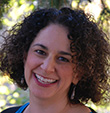
Associate professor Deborah Starr. Photo: provided. See larger image
With Deborah Starr, associate professor of modern Arabic and Hebrew literature and film, the library created a digital archive of Ghali's personal writings that is available for free online.
Meanwhile, May Hawas discovered the archive while writing her dissertation on world literature. "As a student in Europe, I appreciated finding Cornell's Waguih Ghali archive," Hawas says. "As a teacher in Egypt, I appreciate the archive's open access. For those of us who don't always have access to well-connected libraries, such archives can be very useful."
Hawas, who teaches at the University of Alexandria, says she will recommend the archive to other Ghali enthusiasts and propose the grant program as a potential model at her own university.
But the story doesn't end there: Hawas and Starr have begun a joint project on Ghali, and through that connection, a friend of Ghali's donated personal letters to the archive – enhancing the kind of connection that 21st-century scholarship demands.
Jessica E. Withers is a writer with Cornell University Library.